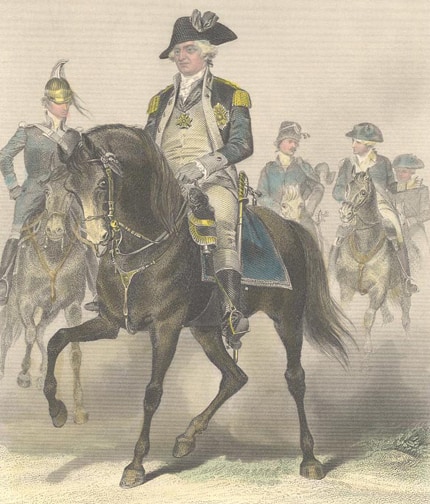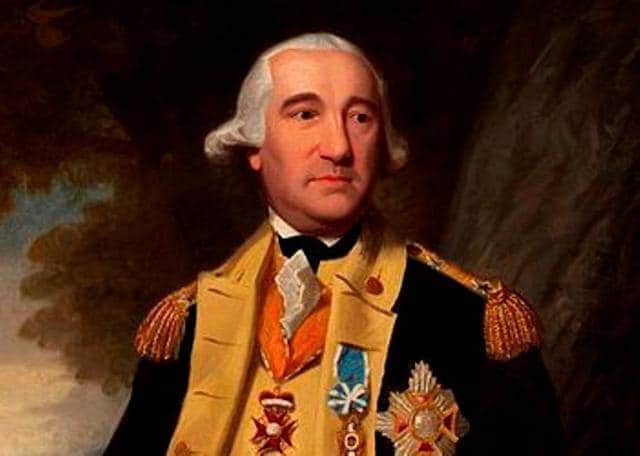Friedrich Wilhelm von Steuben, who went by Baron von Steuben, was a Prussian military officer contracted by George Washington during the American Revolutionary War. He taught the Continental Army rigorous drills and is credited with getting them into shape; allowing them to stand up to the British army. He was born in Magdeburg on Sept. 17, 1730 to a Royal Prussian Engineer named Capt. Baron Wilhelm von Steuben.
Friedrich Wilhelm von Steuben enlisted in the Royal Prussian Army at the age of 17. During the Seven Years’ War in 1756, he served as second lieutenant and was wounded at the Battle of Prague. However, at the end of the war, the king reduced his army and Baron von Steuben found himself without a job. In 1764, he was Hofmarschall in the court of Josef Friedrich Wilhelm, a position he held until 1775. In 1777, Claude Louis introduced him to Benjamin Franklin. However, von Steuben initially didn’t like the deals that Franklin offered and returned to Prussia. When he returned, he was accused of homosexual relationships with young men. He went back to Paris, but the accusations followed him. He was then introduced to George Washington via a letter and left France for America.

1 – He cleaned up the encampments
Baron von Steuben was instrumental in establishing standards of hygiene and cleanliness that would be in use for over a century for wartime camps in the U.S. Army. Washington appointed him Inspector General in May 1778, after being appointed to the position temporarily. Baron von Steuben traveled around to the camps and inspected elements such as latrines, huts, muskets and equipment.
He developed a system where waste would be emptied from the latrines downhill, away from food and huts. This was a vastly different system than which was in place. The Continental Army was often living in filthy conditions; von Steuben completely reorganized the camps.
Before von Steuben arrived, there was no rhyme or reason to the arrangement of huts. He changed that, setting up a detailed map for camps. Animals were often slaughtered and left to rot. Von Steuben changed this procedure, explaining that this can spread disease and lower morale.
He also came up with a record keeping system, which accounted for any lost or damaged equipment. This saved the Continental Army untold amounts of money on equipment that otherwise would have been unaccounted for. It is estimated that he saved five to eight thousand muskets.
Baron von Steuben was the first really acceptable Inspector General for the Continental Army and set a precedent for all to follow. Benjamin Franklin embellished his accomplishments for Congress so that they would accept him into the position. Although at first he was Inspector General on a trial basis, by May 1778 he was officially appointed the position with the same rank and pay as a full-time General in the army. A lot of the colonels during the Revolutionary war resented Baron con Steuben’s efforts, however, his personality and candor often won them over and helped to make the transition into orderly camps more manageable.

